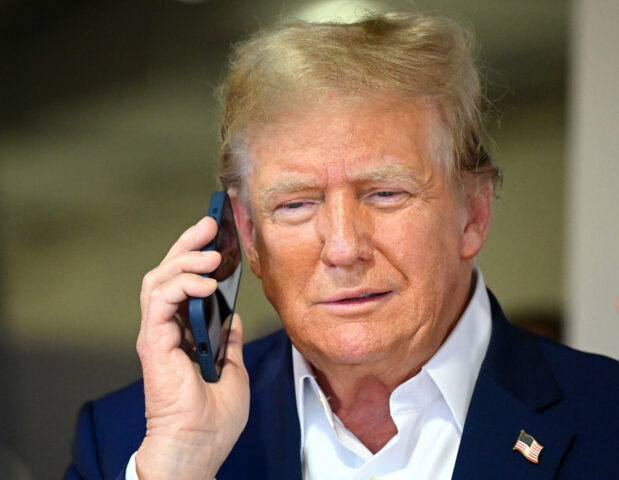President Donald Trump spoke Thursday with Chinese leader Xi Jinping in a wide-ranging phone call that marked a reset in U.S.-China trade relations and, according to the president, resolved key disputes over the export of rare earth minerals.
Trump described the 90-minute call as “very productive,” saying both sides had agreed to resume trade talks soon and that he and Xi had exchanged invitations to visit each other’s countries. “The call lasted approximately one and a half hours, and resulted in a very positive conclusion for both Countries,” Trump posted on social media. “There should no longer be any questions respecting the complexity of Rare Earth products.”
Speaking to reporters afterward, Trump said the conversation was focused “mostly on rare earth magnets and some other things,” and that the two sides had “straightened out any complexity.” He added, “I think we’re in very good shape with China and the trade deal.”
The renewed diplomatic engagement comes after tensions flared in recent weeks, with each side accusing the other of violating a tariff truce struck in Geneva last month. U.S. officials had said China was slow-walking export licenses for rare earth minerals—materials critical to the auto, defense, and electronics sectors—while Beijing objected to new U.S. restrictions on advanced chip technologies and student visas.
Thursday’s call was the first direct conversation between the two leaders since Trump’s second term began in January. It followed backchannel contacts earlier in the week between Chinese Foreign Minister Wang Yi and U.S. Ambassador David Perdue, as well as a Track II dialogue in Beijing between Chinese Vice President Han Zheng and a U.S. delegation.
As part of the next phase of negotiations, Trump announced that Treasury Secretary Scott Bessent, Commerce Secretary Howard Lutnick, and U.S. Trade Representative Jamieson Greer would lead talks with Chinese counterparts, including Vice Premier He Lifeng. The inclusion of Lutnick, who oversees U.S. export controls, signals that future discussions will likely extend beyond tariffs to encompass national-security policy in high-tech sectors.
China’s official readout confirmed the call and emphasized Xi’s desire for the U.S. to remove “negative” trade measures, including export restrictions and visa limitations. It also reported that Xi cautioned the U.S. to “handle the Taiwan issue cautiously.” However, Beijing made no public mention of rare earths in its summary of the conversation.
Still, the decision by Xi to participate directly—something he had resisted since January—was widely seen as a signal that Beijing is open to re-engagement. According to Chinese state media, the call was made at Trump’s request.
Trump, for his part, offered reassurances on student visas, saying that Chinese students remain welcome. “Chinese students are coming—no problem. It’s our honor to have them, frankly,” he said.
While some analysts have questioned whether the call produced tangible breakthroughs, markets responded positively. The S&P 500 erased earlier losses, and the dollar strengthened after Trump posted his remarks online.
The renewed U.S.-China engagement comes as the Trump administration also prepares for high-stakes trade talks with Europe. German Chancellor Friedrich Merz is set to meet with Trump at the White House Friday, with the 90-day pause on transatlantic tariffs due to expire July 9.
The White House’s success in reviving negotiations with Beijing may strengthen Trump’s hand in those talks as well. For now, the president appears confident that his approach—leveraging tariffs to gain concessions—has yielded results.
“We’re going to solve a lot of problems together,” Trump said. “And we’re going to do it very soon.”
Read the full article here
